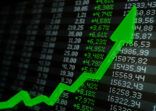Asset managers will stand out in terms of ESG if sustainability is core to the firm’s identity, and if they have invested in well-staffed, well-integrated teams of ESG experts and research capabilities.
This was among the main findings from a new round of evaluations conducted by Morningstar – covering 251 funds, representing 140 strategies and 31 asset managers.
Other take-aways from the latest set of assessments include:
- Out of the 140 strategies, only one was awarded an ‘ESG Commitment Level of Leader’: the CFS Affirmative Global Bond Fund in Australia
- Out of the 31 asset managers, only one was awarded the top accolade of ‘Leader’: Australia’s Affirmative Investment Management. Five firms earned the Advanced level, including Amundi, BNP Paribas Asset Management, HSBC Asset Management, Jupiter, and Legal & General Investment Management
- The largest group of asset managers (13) received an ‘ESG Commitment Level of Basic’, including Allianz Global Investors, Invesco, JPMorgan, State Street, and T. Rowe Price. Twelve firms earned an ‘ESG Commitment Level of Low’, including Franklin Templeton, Janus Henderson, Mellon Investments, and VanEck.
- There are 16 funds available for sale in the Asian markets, across Hong Kong, Singapore and Taiwan
These findings were based on the Morningstar ESG Commitment Level, launched in late 2020 to express assessments by the data provider’s analysts of the determination of asset managers to incorporate ESG factors into their investment processes and organisations in general.
This report also coincided with the launch of two new ESG assessments: the Morningstar ESG Commitment Level for strategies and asset managers; and the Morningstar ESG Risk Rating Assessment for companies.
The new risk ratings are a visual expression of Sustainalytics’ ESG Risk Ratings, which measure a company’s exposure to industry-specific material ESG risks and how well a company manages those risks.
“Investors of all types want help curating sustainable investment choices and understanding material ESG risks,” said Michael Jantzi, chief executive officer for Sustainalytics, which Morningstar acquired in July 2020.
The need is increasingly acute given global flows into global sustainable funds rose 19% to nearly $2trn in the first quarter of 2021, according to Morningstar data. This highlights steady growth over the past three years and is the fourth quarter in a row that a new high has been hit in terms of sustainable fund flows.
Best practices shine through
At the same time, Morningstar analysts have identified what they consider best practices for asset managers.
In terms of resources, for example, the asset managers who sit at the higher end of the spectrum “boast well-staffed, well-integrated teams of ESG experts in addition to robust, effective ESG data and research”, said the report.
In these firms, all investment professionals possess a certain level of proficiency in sustainability topics, and designated ESG specialists are committed to advancing ESG knowledge, both within the organisation and for the industry overall. The report added that teams which are siloed from one another are unlikely to achieve investment success.
In terms of philosophy and process, meanwhile, the report explained that asset managers who rate most highly have made sustainable investing core to the firm’s identity. These fund houses operate with a shared belief that “sustainability goals go hand-in-hand with financial return, and this is reflected at all levels of the organisation”, said the report.
In the strongest cases, the Morningstar analysts said the philosophy of a dual outcome is evidenced in a firm’s investment offerings. In addition to ESG-focused strategies, these asset managers commonly mandate a firmwide minimum level of compliance with ESG goals and restrictions.

















